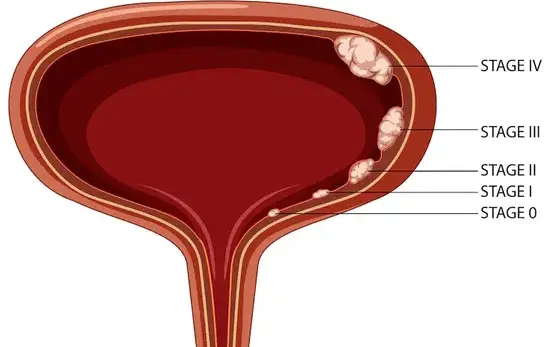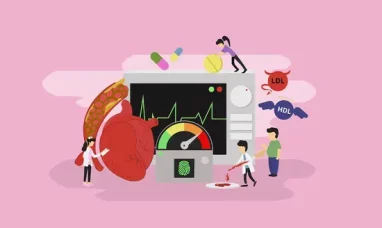Once bladder cancer has reached an advanced stage, the first thing that is done is often a transurethral resection. This is done to determine how much the cancer has advanced or the extent of its spread.
Stage III Bladder Cancer
After determining how far the cancer has grown, the usual course of treatment is to perform a radical cystectomy, which is the removal of the bladder and the neighboring lymph nodes. Alternatively, in stage III, partial cystectomy is sometimes an option, though very rare.
Before the patient goes in for surgery, neoadjuvant chemotherapy is given as the first step. This can help to shrink the tumor sometimes, thus making the surgery easier. This is especially the case for T4a tumors—those that have grown outside of the bladder.
Chemo also helps to kill any cancer cells that might have traveled to other parts of the body.
Some patients will also have chemo after surgery—called adjuvant treatment—to help kill any cancer cells that were left over after surgery.
If a patient cannot undergo surgery for other health reasons, other treatment options might include radiation, TURBT, immunotherapy, chemotherapy, or a combination of these.
Stage IV Bladder Cancer
Stage IV bladder cancer is the stage in which the tumor reaches the abdominal or pelvic wall, but it may also spread to nearby lymph nodes or to body parts farther away.
In the case of stage IV bladder cancer, surgery isn’t always able to remove all of the growth. Because of this, treatment is often instead aimed at slowing down the growth and spread of the cancer.
If the tumor hasn’t yet spread to more tissues in the body, chemotherapy—with or without radiation—will usually be the first approach to treatment. If the cancer then shrinks, a cystectomy might become a viable option. For patients that can’t handle chemo because of their overall health, radiation therapy or immunotherapy drugs may be a better option.
Chemotherapy is also often the first treatment approach to stage IV bladder cancers that have spread to other parts of the body. In these cases, a urinary diversion without cystectomy may be done to prevent or relieve any blockage of urine that might cause kidney damage.
Featured image: j.dudzinski via DepositPhotos








